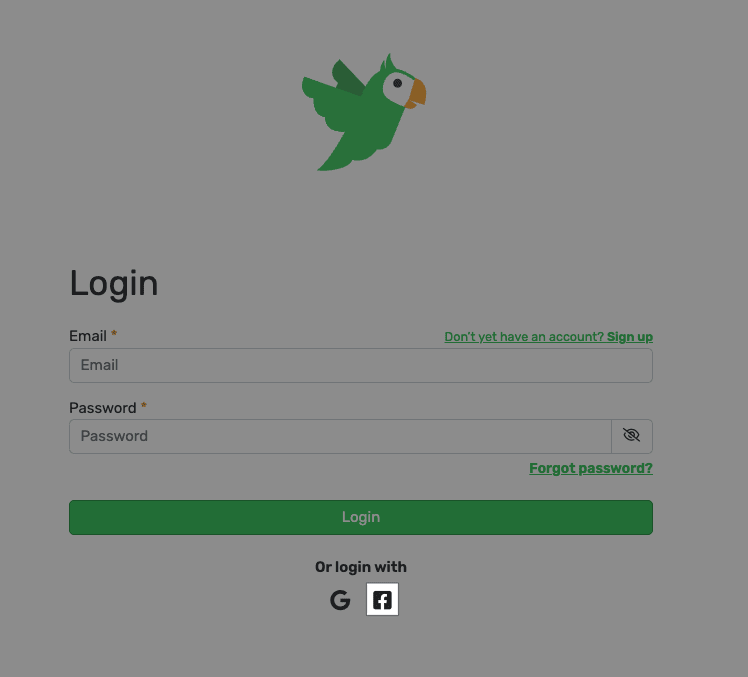You have any kind of marketplace business, or you provide services on your own, or you have a business sales for consumers online.
Fewer steps the user need to do to get the purchase - a bigger chance to get him to pay.
Quite often users leave at the very end of the flow: payment. Payment often requires a login. Asking the user to provide an email name and password is a terrible option there as then we ask the user to do extra actions he most likely doesn’t want to.
Do we need the user to be logged in to get a transaction gone through?
Nowadays we have the following less-disturbing options
Ask the user to pay without registration. Just ask for an email to be able to notify a user about the order and track the order properly in your system. Then user doesn’t do any long action during the flow, but we don’t get a fully registered user.
Use social-media or OAuth-based logins approach: Facebook Login, Google Login, LinkedIn Login. They are much smoother and faster compared to the Email + Password option, also they provide other benefits we will describe later. They are free.
Use Phone number login with a short-code verification. It’s also a good option today, but usually, there are some operational costs on top of it, and on top of this you still usually need to ask for email and other information anyway.
Let’s focus on Facebook Login
What are the benefits we get right away:
a Facebook login eases the process for your users to create an account and login to your website. By integrating Facebook login, users can directly use their existing Facebook account credentials to access your website, eliminating the need to create and remember new account details. This can save your users time and hence enhances their user experience on your site.
Facebook is one of the largest social media platforms in the world. By integrating a Facebook login on your website, you allow your users to connect with your business through their Facebook profile. This can help you widen your reach and enhance your business's visibility.
Facebook login assists in the acquisition of user data. Facebook's API enables you to retrieve necessary information about users, such as their name, email address, and profile picture. This user data can help you personalize your users' experience on your site and enable you to segment your users better.
a Facebook login on your site can enhance your website's security. By using Facebook's infrastructure to authenticate user credentials, you eliminate the need to manage sensitive information, such as passwords, on your website. This helps ensure that your user's information is secure.
Quite a lot of good stuff, agree?
But how?
Even though Meta did quite a good work of explaining how to setup it up for you, it still quite a lot of things to understand and to be done before you can make it work. Also, it usually comes to development costs
How does it work in Fleexy?
To remove all the pain of integration on our end we made a bunch of microapp for social logins
By using micro apps you would be capable to integrate the following Social Media Logins in a few minutes:
- Google Login
- Facebook Login
- LinkedIn Login
- GitHub Login
All you need to do is update a few fields on our end to enable Social Media Logins Specifically for the Facebook app
Just go into the Facebook app you have created before according to the guide
And put them into the Auth Setting on Fleexy Auth Microapp
That's pretty all. Now you will get the Facebook Login up and running
Conclusion
Integrating a Facebook login on your website has significant benefits. It streamlines the login and account creation process, broadens your reach, enhances personalization and segmentation, and increases security. With various cost-effective tools available to simplify this integration, implementing a Facebook login should be an essential consideration for businesses looking to establish an online presence.
Thanks to Fleexy Microapps you can make this in with no headache and get happy customers with no extra costs for your business.










Top comments (0)